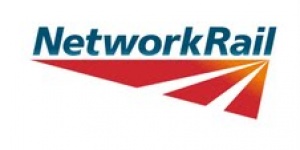Network Rail: Tarka line improvements make for an easier ride

Nine miles of track to be renewed - the biggest investment for more than 100 years. Network Rail is to deliver further improvements to the Tarka Line, which links Barnstaple and Exeter, to make the train ride smoother for passengers and help pave the way for faster journey times. The company will start work in two weeks’ time renewing track at Lapford and also between Eggesford and Portsmouth Arms.
Further track renewal improvements are planned between Crediton and Yeoford and in the Umberleigh and Chapelton areas next March.
The latest programme of improvements brings the total spend on the line to £9.3m to date in the current financial year (April 2012 – March 2013).
Network Rail’s Western route managing director, Patrick Hallgate, said: “This is the biggest spend on the Tarka Line in more than 100 years and is certainly the largest single investment in the line since approximately £4.6m (today’s prices) was spent on re-modelling the junction and replacing the bridges at Cowley Bridge, Exeter in 1965.”
Julian Crow, Regional Manager, West of England for train operator First Great Western, said: “The Tarka Line is thriving with more passengers than ever and we very much welcome this huge investment in the line’s future, leading to smoother and faster journeys for our customers.
ADVERTISEMENT
“Since the beginning of the franchise in 2006 First Great Western, working with Devon County Council, has provided an additional nine services a week to the line. We’ll do our best to make journeys as easy as possible whilst the work is carried out and look forward to the improvements when it is completed.”
John Burch, chairman of the Tarka Rail Association, said “We are delighted that this work is going ahead on the Tarka Line at long last. We have been involved in discussions about these plans for a very long time.
“We have worked hard to raise the profile of the Tarka Line and attract investment to improve the service offered. Our ultimate aim is to see faster services on the line and an increase in line capacity to cope with the huge increase in the number of people using the Tarka Line in recent years. We realise that suspension of the train service over parts of the line is a huge inconvenience to customers, but this is the best and quickest way to undertake this extensive work.
“We are also working with First Great Western to ensure that suitable replacement road services are operated during the works and believe that short term pain will bring significant long term gain. This investment demonstrates a confidence in secondary routes as part of the essential future public transport network and we know it is the only way to get people out of their cars in the medium to long term.”
As part of the programme, the line will be closed for major track renewal works from Saturday 17 November to the morning of Monday 3 December 2012. The works in March 2013 are expected to take an additional seven days.
In both November 2012 and March 2013, the railway will remain open for trains as far as Crediton, with replacement road transport being provided between Crediton and stations to Barnstaple.
The work in November and that planned for next March will support aspirations to reduce the journey time between Exeter St Davids and Barnstaple in the future and includes the renewal of aged jointed rail with modern continuously welded rail – giving an immediate benefit to passengers in train ride quality.
On completion, nearly nine miles of track, just under a quarter of the line’s 39 miles, will have been renewed, replacing track which had an average age of 55 years, with some of the earliest components dating back to 1942.
Over the last 10 years, the number of trains on the line has increased, reflecting a significant increase in passenger use. The number of journeys made on the line was more than 500,000 in a single year for the first time last year and has increased by more than two-thirds between 2006 and 2011, from 306,169 journeys then to 512,091 in 2011.

